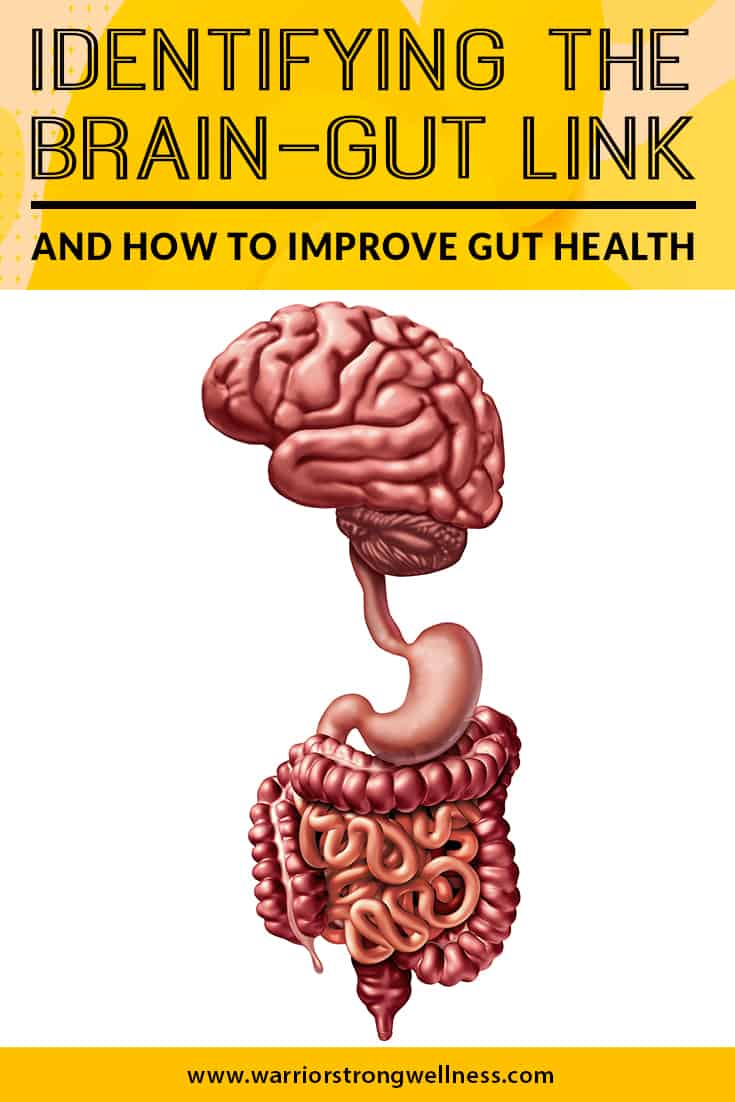The connection between the brain and gut can have a significant impact on your emotions. Learn how diet, exercise, stress management, and bone broth protein with collagen peptides can help you have a healthier gut.
Recent discoveries from researchers reveal a connection between the health of your gut and the function of your brain. In fact, you may have heard scientists call the over 100 million nerve cells that line the entire digestive tract a second brain.
What is a gut feeling? Why does being nervous give you butterflies in your stomach? Can you help regulate your emotions by improving gut health? We will take a closer look at the enteric nervous system (ENS), the part of your gastrointestinal tract that communicates with the brain in very unique ways.
Does Your “Second Brain” Actually Think?
The short answer is no. You’re not doing math computations in your stomach. So if you fail a math exam, you can’t blame it on your gut. At least not entirely. Your ENS does communicate with your brain consistently, primarily regarding digestive matters. However, we will see that emotions are also involved. So those nerves that you have about your big math test, the ones that cause you to panic and blank on the answers, may have something to do with your gut health.
The fact of the matter is that research is reversing scientific thought on the brain-gut link. The previous understanding was that depression, anxiety, stress, and other emotions would trigger conditions like irritable bowel syndrome. Now, they realize that the opposite might be more accurate. It could be gut problems that are adding to mental health issues.
How the ENS Interacts with the Brain
Where things really get interesting is when you look into the interactions between the brain and the gut. Of course, the brain is responsible for releasing hormones, sending chemical neurotransmitters, and handling many processes directly related to digestion, gut microbiota, and gut health in general.
However, it is the ENS that is sending indicators to the brain, so it knows what to do. Therefore, while the brain is giving the orders to the body, the ENS is telling it what to say, particularly when it comes to moving food through the gut, regulating the mucus lining, and so on.
The Connection Between Gut Microbiota and the Brain
While the brain can make decisions that affect your gut microbiota, gut health can also impact how your brain functions. This is especially the case when it comes to your emotions. For example, the gut has a great deal of influence on serotonin, a potent biochemical messenger. If you are familiar with what serotonin does, you probably realize the connection between this neurotransmitter and a person’s happiness level. Antidepressants often work by regulating serotonin levels in the brain because it is one of the primary neurotransmitters that impact mood.
However, it is essential to note that serotonin levels also impact behavior. Our brain is always on the lookout to help us get that next big mood boost. So if you are addicted to that new game on your smartphone, it may be serotonin reminding you of how good you felt last time you beat that difficult level. Just remember that your gut helps control serotonin too.
So could all those impulse microtransactions running up on the credit card bill actually indicate poor gut health? The repercussions of not taking care of the gut are tough to narrow down – we just know there are a lot.
The main takeaway is that you want to optimize your gut health. It can impact everything from mood to behavior. So let’s discuss some of the most important ways to improve the health of your gut microbiota and your GI tract in general.
Top Tips for a Healthier Gut
Let’s talk about some of the essential lifestyle adjustments to make if you want to improve the health of your gut, and subsequently, your brain.
- Foods to cut out of your diet – All fast foods, highly processed foods, and foods with lots of added sugar should go without saying. On top of that, you may also want to try an exclusion diet to see if foods with gluten or dairy products are affecting your gut bacteria. Remember, if you see mental health benefits along with GI benefits, then it is a good idea to stay away from those foods.
- Foods to add to your diet – To give your gut flora a boost, try eating more plant-based foods. Increase the amount of fiber in your diet. Remember that fermented foods are high in probiotics.
- Get daily exercise – Even 20 minutes of activity each day can do a lot of good for your digestive system.
- Reduce your stress levels – You can do this with a regular sleep schedule, daily exercise, a relaxing hobby, meditation, or even an ashwagandha supplement.
- Use the right supplements – This can include a probiotic, ashwagandha, and especially bone broth protein with collagen peptides.
The Best Supplements to Help You Get Your Gut Healthy Again
For both your physical and mental well-being, good gut health is crucial. Warrior Strong Wellness wants to help you feel your best, despite the stresses you may face in daily life. That is why we offer the top supplements for your health, like ashwagandha to help reduce your stress levels and bone broth protein with collagen peptides to help repair an unhealthy gut.
To learn more, check out our store today. Our anti-inflammatory immunity bundle contains ashwagandha as well as bone broth protein with collagen peptides, so it is the perfect way to get a jumpstart on improving the health of your gut microbiota.



